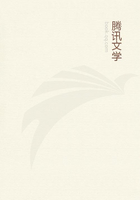
第110章 Religion(1)
I.Philip Beauchamp
The application of Mill's Analysis to the views of orthodox theologians required,one might have supposed,as little interpretation as a slap in the face.But a respectable philosopher may lay down what premises he pleases if he does not avowedly draw his conclusions.Mill could argue in perfect safety against the foundations of theology,while Richard Carlile was being sent to gaol again and again for attacking the superstructure.The Utilitarians thought themselves justified in taking advantage of the illogicality of mankind.Whether it was that the ruling powers had no philosophical principles themselves,or that they did not see what inferences would follow,or that they thought that the average person was incapable of drawing inferences,they drew the line at this point.You may openly maintain doctrines inconsistent with all theology,but you must not point out the inconsistency.The Utilitarians contented themselves with sapping the fort instead of risking an open assault.
If its defenders were blind to the obvious consequences of the procedure,so much the better.In private,there was obviously no want of plain speaking.
In Bentham's MSS .The Christian religion is nicknamed 'Jug'as the short for 'Juggernaut.'He and his friends were as anxious as Voltaire to crush the 'infamous,'but they would do it by indirect means.They argued resolutely for more freedom;and Samuel Bailey's essay upon the formation of opinions --a vigorous argument on behalf of the widest possible toleration --was enthusiastically praised by James Mill in the Westminster Review .For the present they carefully abstained from the direct avowal of obnoxious opinions,which were still legally punishable,and which would undoubtedly excite the strongest hostility.Bentham,as we have seen,had ventured,though anonymously,to assail the church catechism and to cross-examine St.Paul.
One remarkable manifesto gave a fuller utterance to his opinions.A book called The Analysis of the Influence of Natural Religion on the Temporal Happiness of Mankind ,by 'Philip Beauchamp,'appeared in 1822.The publisher was Richard Carlile,who was then 'safe in Dorchester gaol.'
No legal notice was taken of 'Philip Beauchamp.'The reason may have been that the book excited very little attention in general.Yet it is probably as forcible an attack as has often been written upon the popular theology.
The name of 'Philip Beauchamp'covered a combination of Bentham and George Grote.1The book,therefore,represents the view of representative Utilitarians of the first and third generation,and clearly expressed the real opinions of the whole party.In his posthumous essays J.S.Mill speaks of it as the only explicit discussion known to him of the question of the utility,as distinguished from the question of the truth,of religion.
Obviously,it was desirable to apply the universal test to religious belief,and this very pithy and condensed statement shows the result.
A short summary may indicate the essence of the argument.It is only necessary to observe that the phrase 'natural religion'is part of the disguise.It enables the author to avoid an explicit attack upon revelation;but it is superabundantly obvious that the word 'natural'is superfluous.Revelation is really a fiction,and all religions are 'natural.'A religion is called a 'superstition,'as 'Philip Beauchamp'remarks at starting,when its results are thought to be bad;and allowed to be a religion only when they are thought to be good.2That device covers the familiar fallacy of distinguishing between uses and abuses,and,upon that pretence,omitting to take bad consequences into account.We must avoid it by defining religion and then tracing all the consequences,good or bad.Religion is accordingly taken to mean the belief in the existence of 'an Almighty Being,by whom pains and pleasures will be dispensed to mankind during an infinite and future state of existence.'
The definition is already characteristic.'Religion'may be used in a far wider sense,corresponding to a philosophy of the universe,whether that philosophy does or does not include this particular doctrine.But 'Philip Beauchamp's'assumption is convenient because it gives a rational reasoning to the problem of utility.Religion is taken to be something adventitious or superimposed upon other beliefs,and we can therefore intelligibly ask whether it does good or harm.Taking this definition for granted,let us consider the results.
The first point is that we are of necessity in absolute ignorance as to a posthumous state.Now,fear is from our earliest infancy the 'never-failing companion and offspring of ignorance.'Knowledge alone can rescue us from perpetual suffering,because all security depends upon knowledge.Pain,moreover,is far more 'pungent'and distinct than pleasure.'Want and pain are natural;satisfaction and pleasure artificial and invented.'Pain,therefore,as the strongest,will dictate our anticipations.The hope of immortality is by the orthodox described as a blessing;but the truth,deducible from these principles of human nature and verified by experience,is that natural religion,instead of soothing apprehensions,adds fresh grounds of apprehension.A revelation,as 'Philip Beauchamp'admits,might conceivably dispel our fears;but he would obviously say that the religion which is taken to be revealed gives a far more vivid picture of hell than of heaven.3In the next place,it is 'obvious at first sight'that natural religion can properly give 'no rule of guidance.'It refers us to a region of 'desperate and unfathomable'darkness.4But it nevertheless indirectly suggests a pernicious rule.It rests entirely upon conjectures as to the character of the invisible Being who apportions pain or pleasure for inscrutable reasons.Will this Being be expected to approve useful or pernicious conduct?